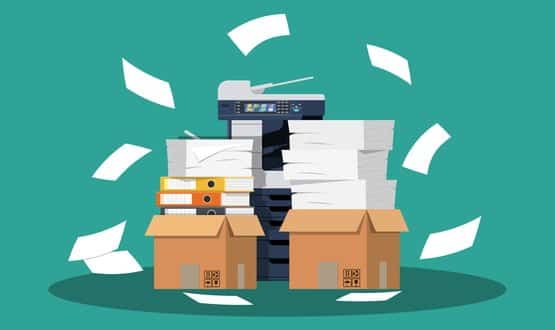Ex-minister speaks of ‘horror’ of having to digitise the NHS with no plan
- 9 October 2018

A former life sciences minister has reportedly spoken of the ‘horror’ of being awarded significant money to create a digital NHS with no plan as to how to do it.
Despite being responsible for promoting the use of technology in healthcare, George Freeman told a fringe meeting at the Conservative Party conference last week that he was frozen out of the spending talks in which new investment in a paperless NHS was agreed.
Instead, Freeman and his civil servants were told to set out how they would spend the money once it had already been allocated.
Then-health secretary Jeremy Hunt announced a five-year, £4.2 billion investment in NHS IT in 2016. The intention was to advance NHS digitisation.
According to BBC News, Freeman said he and colleagues were initially delighted to have been given the money. But when it came to the delivery plan, the ‘system’ proved incapable of capitalising on the investment.
He also said the team charged with designing the new digital system had based their work on academic literature rather than the experiences of patients and clinicians.
The Mid-Norfolk MP, who previously had a career in biomedical venture capital, also said his self-proclaimed ‘horror story’ highlights how top down solutions never work.
Instead, he told the Taxpayers’ Alliance meeting that the answer was ‘lots of local digital solutions’ designed by doctors and believes the IT industry will ‘quickly’ work out how to make systems talk to each other.
Freeman is reported to have said: “Hiring an off-the-shelf big package from one of the big companies has been proven time and again to fail.”
The former minister spoke at Digital Health’s Leadership Summit in 2016, where he said in a recorded message that ministers were “completely behind” the digitisation of health and social care because “it is urgent for personal care, it is urgent for safe care, and it is urgent for research”.





6 Comments
.. sorry ‘get’ very far
This really requires local NHS IT departments to be involved. NHS Digital need to engage with the local IT departments and hold conferences. Infrastructure needs to be put in place to link up the health cares, Trusts, CCGs etc.
We then need to either look at standardisation of clinical systems or look at interfaces so that all systems can speak to one another.
Paper medical records need to be scanned in and kept electronicly, patients should be issued with a medical card that allows different types of access to their files depending on what health authority they are visiting regardless where in the UK
The original records are kept in that patients Counties Health Authority Data Centre and is managed by that Authoritys local IT team
What about starting by asking the medics what they want – not pushing technology down their throats, but process and workflow, aided by SUITABLE technology? Many IT projects fail because they don’t do what users want and that is because nobody asked them. They are too busy with the ‘digital revolution’ and ‘technology flavour of the month’ to care about end users (including patients). People are constantly putting the technology cart before the process/workflow horse and one doesn’t bet very far with that configuration.
It is through the many optimisations of often small tasks that the NHS can be transformed.
That’s it in a nutshell.
This storey did the rounds of informatics developers last week.
One common point is we miss the low hanging fruit and requirements of health professionals in the field are ignored. We ignore problems being discussed with paperless nhs and expressed here https://www.digitalhealth.net/2018/10/east-suffolk-and-north-essex-automation-technology/
The requirement is basic and needs simple technology support, not complicated schemes and elaborate models. It should not to be too simple, as seen with just scanning folders.
Comments are closed.